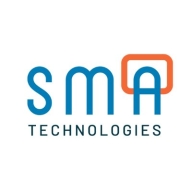

OpCon and Rocket Zena are products competing in the automation software market. Based on data comparisons, OpCon has the upper hand in pricing and support, whereas Rocket Zena is favored for its advanced features.
Features: OpCon offers job scheduling and workload automation along with powerful integration capabilities, making it highly efficient for traditional automation tasks. Rocket Zena is known for its customizable workflows, innovative automation capabilities, and modern workflow adaptability, providing comprehensive automation solutions.
Room for Improvement: OpCon could enhance its modern workflow adaptability, increase its customizable features, and improve user interface responsiveness. Rocket Zena may benefit from streamlining deployment processes, enhancing user training, and offering competitive pricing options.
Ease of Deployment and Customer Service: OpCon is recognized for its straightforward deployment method with supportive customer service, making it ideal for quick setups. Rocket Zena, while providing robust support, requires a more complex deployment setup and configuration time, which appeals to users seeking extensive solutions.
Pricing and ROI: OpCon presents competitive pricing with a notable ROI due to lower initial setup costs. Rocket Zena, with its higher upfront investment, justifies the expense through long-term gains from its superior features, ultimately leading to a substantial ROI over time.
| Product | Market Share (%) |
|---|---|
| OpCon | 1.7% |
| Rocket Zena | 2.5% |
| Other | 95.8% |


| Company Size | Count |
|---|---|
| Small Business | 16 |
| Midsize Enterprise | 29 |
| Large Enterprise | 19 |
| Company Size | Count |
|---|---|
| Small Business | 3 |
| Large Enterprise | 6 |
OpCon enhances automation with features like auto-scheduling and Corelation KeyStone integration, empowering users with self-service capabilities. Its intuitive interface and flexibility boost productivity, providing reliable automation and efficient file transfers.
OpCon is a powerful automation platform known for streamlining operations through features like auto-scheduling and robust integration capabilities. It facilitates seamless automation, allowing users to execute tasks without direct environment access and simplifies job dependencies. Users benefit from self-service capabilities, which enable easy task execution by non-IT staff, reducing errors and human intervention. With its modern interface, OpCon supports efficient file transfers and integrates effectively with multiple systems, enhancing productivity. While offering significant scalability, OpCon users suggest improvements in web functionality, script-writing, and graphical displays, along with enhancements in user authorization and notification systems. There is also a need for better template management, clearer logging, improved mobile accessibility, and expanded training resources.
What are OpCon's Key Features?OpCon is widely used in industries like financial services, where automation and scheduling tasks are critical. Financial institutions rely on OpCon for core processing tasks, including reporting, automated workflows, and vendor file exchanges. The platform handles high volumes of jobs across platforms, ensuring efficient operations and reducing reliance on manual processes.
Rocket Zena offers scheduling and dependency mapping, intuitive interface, and containerized deployment. It simplifies workflow automation, enhancing efficiency across platforms.
Rocket Zena's strengths lie in its scheduling capabilities, graphical interface, and efficient deployment. It supports users in task management with cross-platform scheduling, streamlining repetitive tasks through automation. The web-based client facilitates process visualization and workflow management, while the notification system enhances task handling. Users can manage mainframe, Linux, and Windows environments while integrating with SAP and Oracle, ensuring comprehensive automation and efficient job execution.
What are the key features of Rocket Zena?In industries like finance and manufacturing, Rocket Zena plays a vital role in scheduling batch jobs and automating file transfers. It helps adapt task scheduling to business calendars and integrate with existing platforms, ensuring a smooth workflow that meets business objectives.
We monitor all Workload Automation reviews to prevent fraudulent reviews and keep review quality high. We do not post reviews by company employees or direct competitors. We validate each review for authenticity via cross-reference with LinkedIn, and personal follow-up with the reviewer when necessary.